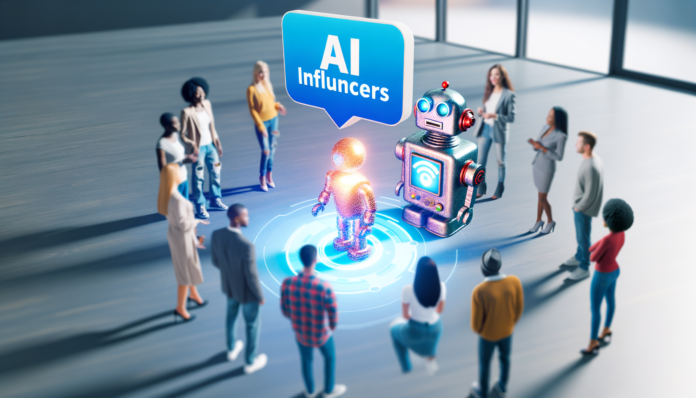The Rise of AI-Powered Virtual Influencers: How Digital Avatars Are Redefining Social Media Marketing
Introduction
In the ever-evolving landscape of social media marketing, a new breed of influencers is emerging: AI-powered virtual avatars. These digital creations are not just captivating audiences with their stunning visuals and engaging content, but they are also redefining how brands connect with consumers. Unlike human influencers, virtual influencers offer brands complete control over their image, message, and availability, eliminating the risks associated with personal scandals or conflicting values. This rise of virtual influencers signals a paradigm shift in social media marketing, promising unparalleled opportunities for brands to craft compelling narratives and cultivate authentic connections with their target audiences. From fashion and beauty to gaming and technology, these digital avatars are rapidly becoming the face of numerous marketing campaigns, raising questions about the future of influencer marketing and the evolving relationship between brands and their digital ambassadors.
The Allure of Virtual Influencers: Why Brands Are Taking Notice
Several factors contribute to the growing popularity of virtual influencers among brands. Firstly, their perfectly curated online personas present an ideal canvas for brand storytelling. They embody specific values and aesthetics, allowing brands to tailor their message with precision. Secondly, virtual influencers offer 24/7 availability and can seamlessly integrate into diverse marketing campaigns across various platforms. This flexibility provides brands with unparalleled reach and engagement opportunities. Finally, and perhaps most significantly, virtual influencers mitigate the risks associated with real-life influencers. They are immune to scandals, controversies, and inconsistencies, ensuring brand safety and message control.
Creating Authentic Connections: Engaging Audiences with Virtual Personalities
While the artificial nature of virtual influencers might seem like a barrier to authenticity, their carefully crafted backstories, unique personalities, and consistent engagement strategies can foster genuine connections with audiences. Many virtual influencers interact with their followers in real-time, responding to comments, participating in discussions, and even collaborating with other virtual or human influencers. This level of interaction builds a sense of community and fosters a loyal following.
Beyond the Hype: Measuring the Impact of Virtual Influencer Marketing
As with any marketing strategy, measuring the effectiveness of virtual influencer campaigns is crucial. Key performance indicators (KPIs) such as engagement rate, reach, website traffic, and conversion rates provide valuable insights into campaign performance. Brands are increasingly utilizing data analytics to track the impact of their virtual influencer collaborations and optimize future campaigns for maximum ROI. Emerging tools and techniques are also enabling more sophisticated analysis of audience sentiment and brand perception related to virtual influencers.
The Future of Influence: Virtual Avatars and the Metaverse
The rise of the metaverse presents a new frontier for virtual influencers. These digital environments offer immersive experiences where brands can create unique and engaging interactions with their target audiences. Virtual influencers can host virtual events, showcase products in virtual showrooms, and even create personalized experiences for individual users. As the lines between the physical and digital worlds continue to blur, virtual influencers are poised to play an increasingly prominent role in shaping consumer behavior and brand loyalty within the metaverse and beyond.
Conclusion
The rise of AI-powered virtual influencers marks a significant shift in the social media marketing landscape. These digital avatars offer brands a powerful new tool to connect with consumers in engaging and authentic ways. By carefully crafting compelling narratives, fostering online communities, and leveraging the unique capabilities of virtual influencers, brands can achieve unprecedented levels of reach, engagement, and brand loyalty. As the metaverse expands and virtual interactions become increasingly commonplace, virtual influencers will undoubtedly play a central role in shaping the future of marketing, offering brands a dynamic and innovative approach to connecting with their audiences in the digital age. Embracing this new era of digital influence will be key for brands seeking to stay ahead of the curve and thrive in the evolving world of social media marketing.





























